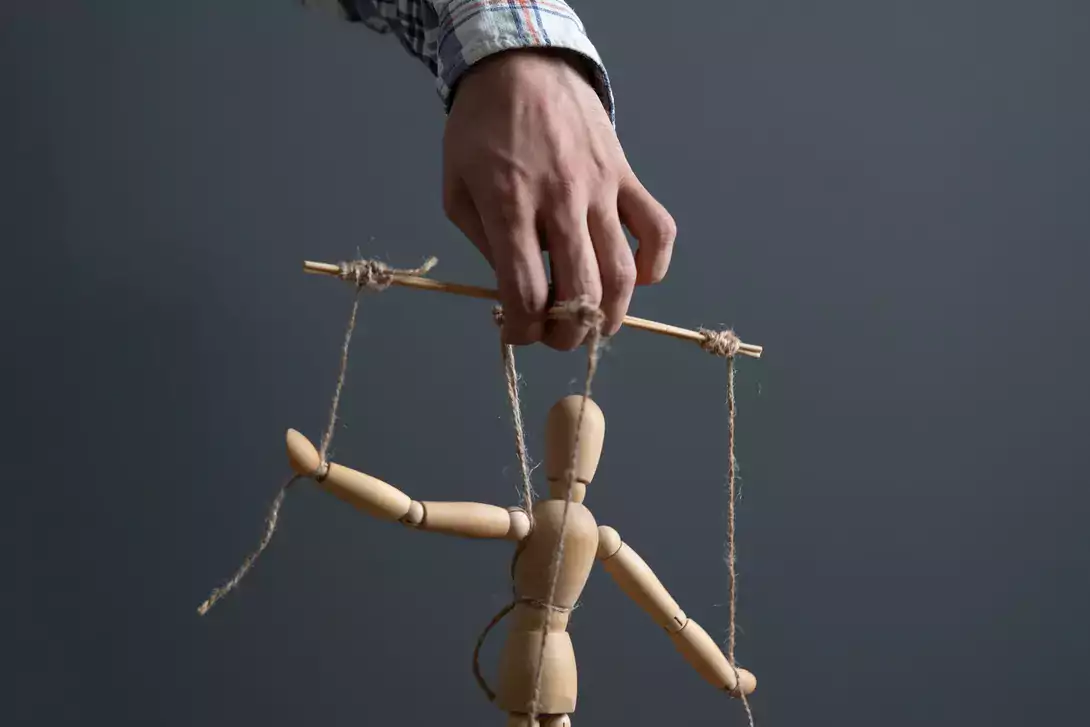Have you ever felt that your partner controls everything in your life? Has it isolated you from your friends and family? Do you feel guilty about things you shouldn't feel? If so, you could be in a toxic and manipulative relationship.
Manipulation in a relationship can be subtle and difficult to detect, but it can cause profound emotional and psychological damage. Manipulative people are experts at controlling others and serving their own interests without taking into account the needs or desires of their partner or other people.
But how can you tell if your partner is manipulating you? We want to provide you with a guide with which you can detect traits of manipulative people, as well as some signs that you could be being manipulated in your relationship. We also give you some tips on how to get out of a toxic relationship and thus establish healthy boundaries.
Remember, manipulation in a relationship is not love. We all deserve to be treated with respect and have healthy relationships.
What is manipulation and how can it affect my relationship?
Manipulation is emotionally abusive behavior that can be very damaging to a person's mental and emotional health.
Manipulative people are often very controlling which can result in an imbalance of power in the relationship, where one person is in control and the other feels powerless.
Furthermore, if this type of dynamic exists in a relationship, it can be very harmful, especially with regard to communication and trust. When a manipulative person lies or cheats on her partner, it can result in a loss of trust and ineffective communication in the relationship.
And as we know, communication is essential in any healthy relationship, and manipulation directly interferes with this, since a person who manipulates their partner can restrict communication and limit the information they share to maintain control over the other person in the relationship. relationship.

What are the traits of a manipulative person?
If you suspect that your partner is manipulating you, it is important to know the traits of a manipulative person. Here we present the main ones:
- They are very controlling: Manipulative people want to control everything, from the way you dress to who you talk to.
- They get angry to unsuspected limits: if they don't get what they want, they can become extremely aggressive or even violent.
- They are people who appear to be very confident and convincing, but in reality they have great insecurity and low self-esteem: that is why they need to control others to feel more secure.
- They are attracted to strong people: Manipulative people are attracted to people who are strong, confident and have high self-esteem, as they are easier to manipulate.
- They act essentially for their own benefit and are self-centered: what matters most to them is getting what they want, even if it means harming others.
- They turn things around : Manipulative people are experts at making it seem like you're the problem.
- They are not capable of empathizing with other people, whom they often objectify and use as means to achieve their ends.
- They tend to have a great ability to detect the weaknesses of others and use them to serve their interests.
- They tend to control what they say and do very well and tend to set long-term goals for themselves: manipulative people are very cunning and know how to get what they want without raising suspicion.
What manipulation tactics are the most frequent in relationships?
Although staying away from manipulative people is the best way to protect yourself, sometimes this is not possible. Therefore, it is essential that you can recognize the tactics most used by the psychological manipulators and narcissists so you can best protect yourself and avoid being hurt. Identifying these tactics will give you the necessary tools to avoid falling into their mind games and maintain a healthy relationship with yourself and with others. In this way, you will be able to detect the manipulators and narcissists in your life and learn to deal with them without affecting your emotional and psychological well-being.
- They selectively apply rewards and punishments: they reward you when you do something that benefits them and they punish you when you don't meet their expectations.
- Love bombing: they flood you with attention and details to make you feel special, but in reality they do it to get something in return.
- They play to confuse you: they tell you one thing and then change their mind or make you believe that you are crazy.
- Gaslighting: They manipulate your perceptions of reality to make you doubt your memory, perceptions, or judgment.
- They generate discomfort through provocations: they provoke you with the aim of making you lose control and end up doing something that benefits them.
- They try to "win" at all times: they always seek to be right, even when they are wrong.
- They always find a way to be the victim: they victimize themselves and blame others for their problems and mistakes.
- When they remind you of a bad moment to change your attitude: they use your weaknesses to control you, for example, they remind you of moments from the past to change your opinion or attitude.
- When they constantly remind you of everything they do for you: they make you feel indebted to them and manipulate you into doing what they want.
- When you are the person responsible for their emotions: They blame you for their negative feelings and make you feel responsible for their reactions.
How can I tell if they are manipulating me?
It is normal to have doubts about whether we are being manipulated, especially if it is a person close to us or whom we love very much. But there are certain signs that may indicate that someone is manipulating us:
- It isolates you: If you notice that you are spending less and less time with your friends and family, and you are more and more alone with the person who could be manipulating you, be careful. Manipulators often try to isolate their victims in order to have more control over them.
- Try to ignore your gut feeling: If you notice that the person is trying to invalidate your feelings or makes you feel like you are overreacting, be careful. Manipulators try to make their victims doubt themselves so they can exert more control.
- You doubt yourself: If you find yourself constantly questioning your thoughts and actions, it may be a sign that you are being manipulated. Manipulators often make their victims feel insecure in order to gain more control.
- You feel guilty: If you feel like everything you do is wrong and you constantly feel guilty, you may be being manipulated. Manipulators often try to make their victims feel bad about themselves in order to gain more control.
- You give up your opinions: If you notice that you have started to give up your opinions and desires to please the person who might be manipulating you, be careful. Manipulators often try to control their victims by making them feel like their opinion doesn't matter.
- You are afraid of their reactions: If you are afraid to say or do something because you fear the person's reaction, you may be being manipulated. Manipulators often use fear to control their victims.
- You start to question your mental health: If you find yourself wondering if you are crazy or have a mental problem, you may be being manipulated. Manipulators often try to make their victims feel insecure and confused in order to gain more control.

How can I get out of a relationship in which I am being manipulated?
We know that getting out of a manipulative relationship can be difficult and painful, but it's important to put yourself first. Here are some practical tips to help you in this process:
- Identify Manipulative Tactics: In order to get out of a manipulative relationship, it's important to be able to identify the tactics your partner uses to manipulate you. This way, you can recognize the signs and take steps to protect yourself.
- Seek support: Talking with trusted friends and family can help you feel less alone in this process and give you the emotional strength you need to leave the relationship.
- Set limits: It is important that you set clear and consistent limits with your partner. This can include anything from limiting the time you spend together to making your relationship needs and expectations clear.
- Seek professional help: If you find it difficult to get out of the relationship, seek professional help. A therapist or counselor can guide you through the process and provide you with tools to deal with the emotional challenges that arise.
- Surround yourself with positive things: Focus on your hobbies and favorite activities to keep yourself busy and take your mind off the relationship. Also, surrounding yourself with positive things and people will help you maintain a positive outlook and steer you away from negativity.
- Don't blame yourself: Remember that manipulation is not your fault. Don't blame yourself for the situation, but instead focus on finding a way to get ahead.

Comentarios